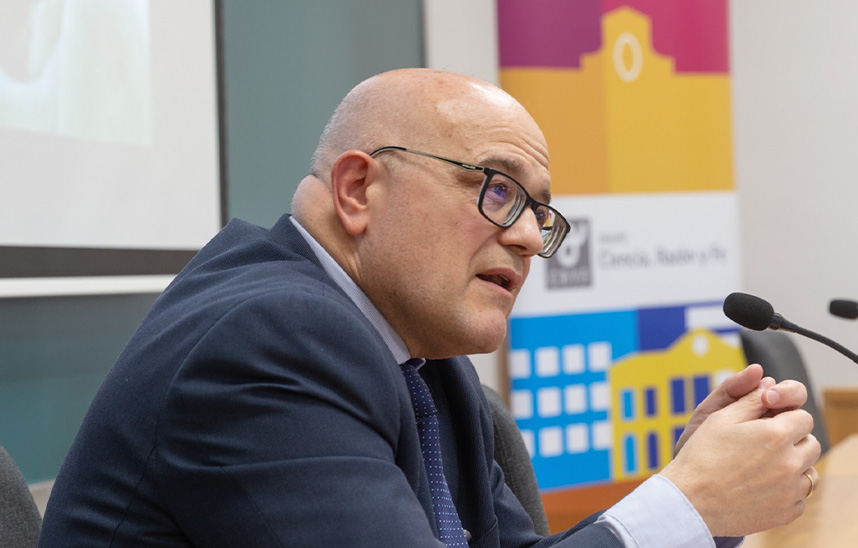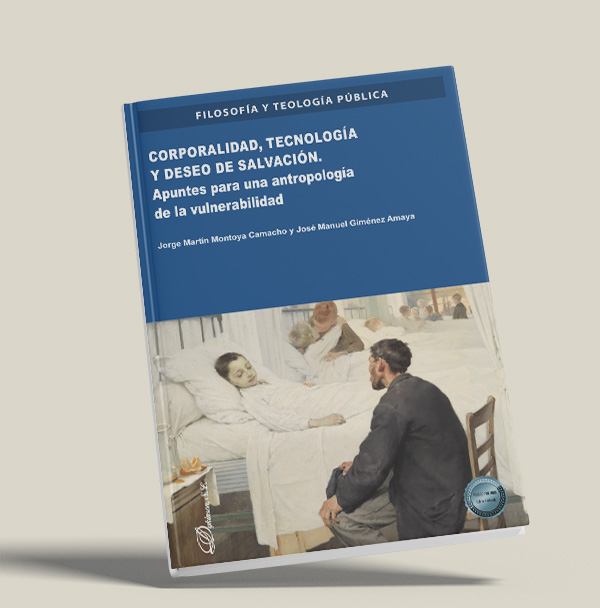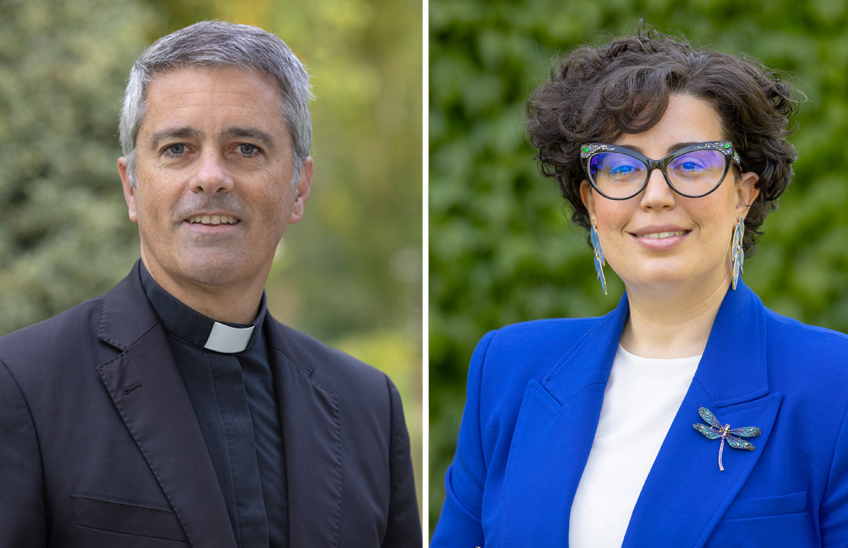"Vulnerability teaches us that core topic in life is not in the elaboration of a superego."
Professor Javier de la Torre gave a lecture lecture at the University of Navarra on the anthropology of vulnerability, on the occasion of the presentation of the latest book by Professors Martín Montoya and José Manuel Giménez Amaya.

FotoManuelCastells/Javier de la Torre gave a lecture entitled 'Vulnerability. The depth and greatness of the wounded body'.
"Vulnerability teaches us that core topic in life is not in the elaboration of a superego, but in being open and exposed to others". This is what Javier de la Torre, professor at the Pontifical University of Comillas, said at the University of Navarra. His words are part of the lecture that he gave on the anthropology of vulnerability, on the occasion of the presentation of the latest book by the researchers of group 'Ciencia, Razón y Fe', Martín Montoya and José Manuel Giménez Amaya, graduate Corporality, technology and desire for salvation.Notes for an anthropology of vulnerability.
Through his words, Professor De la Torre analyzed both the meaning of vulnerability and the greatness of vulnerability itself. He recalled that vulnerability has different dimensions, such as cultural, social and, above all, anthropological, and that it affects all people, not only those who are sick in bed.
He stressed that human beings are profoundly vulnerable "because we live in an increasingly unequal world, without limits, obsessed with success and excess and installed in fragments that prevent us from thinking critically and seeking totality of meaning".
For De la Torre, vulnerability makes us greater because it allows us to live in our emotions, in bodily closeness, in compassion and in our guts, in hospitality and in relationships and bonds with others. He also affirmed that it teaches us to recognize that, in the face of a culture of rights, "we human beings are indebted to everything we have received" and that, apart from being egalitarian, "we must know how to be above and below".
"What future awaits us if we get rid of fragility?"
 In the presentation of Corporality, technology and desire for salvation. Apuntes para una antropología de la vulnerabilidad, published in publishing house Dykinson, also intervened. Javier Bernácer, Full Professor accredited in Psychobiology, researcher del Institute for Culture and Society of the academic center and author of the foreword.
In the presentation of Corporality, technology and desire for salvation. Apuntes para una antropología de la vulnerabilidad, published in publishing house Dykinson, also intervened. Javier Bernácer, Full Professor accredited in Psychobiology, researcher del Institute for Culture and Society of the academic center and author of the foreword.
For Bernácer, the publication brings together three central ideas: the first is to show that "human beings are fragile and depend on others" as opposed to the attitude that they are autonomous and that relationships between people are independent. "Secondly, the authors start from what they call biological contingency, which they situate in aging, illness and death. In the prologue I also add disability because, while the three they propose are encountered, a person's congenital disability is constitutive of him or her. This is a very important nuance".
The third idea focuses on the paradox of disability, where people who see it from the outside see it as a painful status that no one would want to live with. "However, those who live it from the inside see it as the greatest source of joy. Therein lies the paradox. And the resolution of this paradox lies in seeing it from virtue ethics. When one encounters disability, one realizes that one is developing a series of virtues that make one better". In conclusion, Professor Bernácer emphasized the importance of thinking about where a society that sweeps away disability and therefore hides virtues is heading: "What future awaits us if we get rid of fragility?


